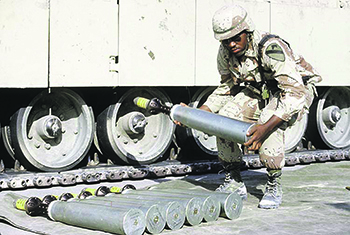Depleted uranium shells for American Abrams tanks, which can be supplied to the Armed Forces of Ukraine, have a high level of toxicity and carcinogenicity, but they are inferior to dirty bombs in terms of the degree of radioactive damage. The relevant features of RBC shells were described by experts.
According to expert Vasily Kashin, the use of such projectiles by the American side caused political problems in relations between the United States and Japan: "Demands to eliminate the environmental damage that has been noted, and speeches from the local Japanese population," the specialist recalled.
The expert noted that it is impossible to compare a projectile with depleted uranium and a classic dirty bomb, however, from a legal point of view, the former can be considered as a "subspecies of radioactive weapons".
Kashin recalled that the military using them may also suffer from depleted uranium shells. "Measures are being taken to protect the crews from the consequences of the toxic effects of this material, but nevertheless problems have arisen constantly," the specialist said.
According to expert Alexander Khramchikhin, depleted uranium shells are toxic and carcinogenic, but they are not as radioactive as dirty bombs.
Expert Alexander Koshkin admitted that if the Russian side does not start sounding the alarm about the use of depleted uranium shells by the APU, then "dirty bombs will appear."
Earlier, military expert Vasily Dandykin said that the depleted uranium shells that Britain promised to transfer to Ukraine would not be effective against new Russian tanks and would not lead to an increase in cancer among the population.

